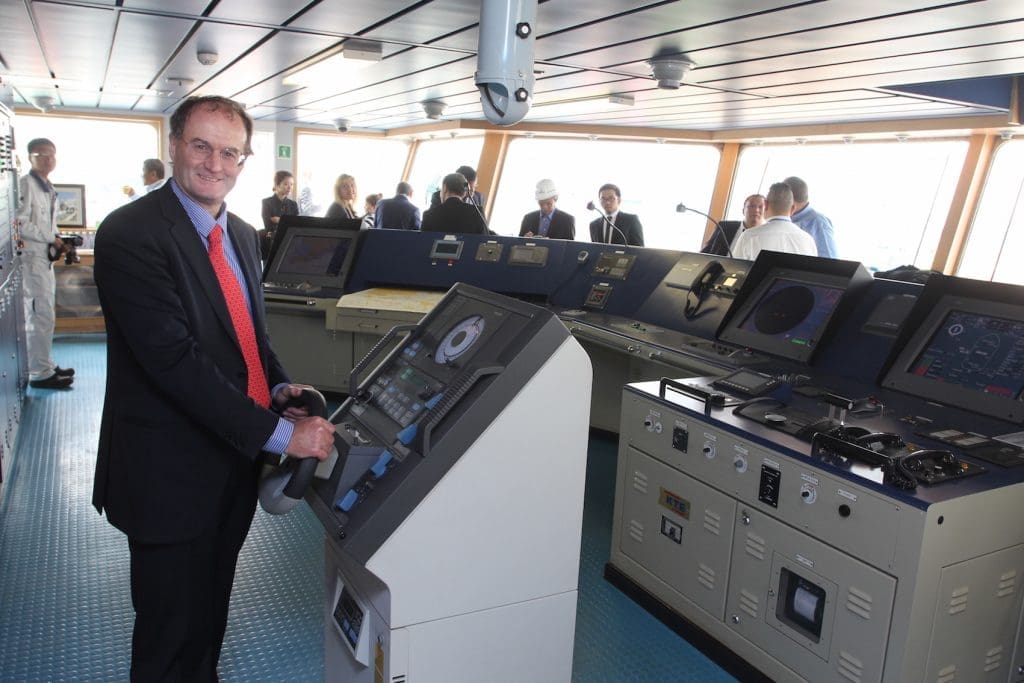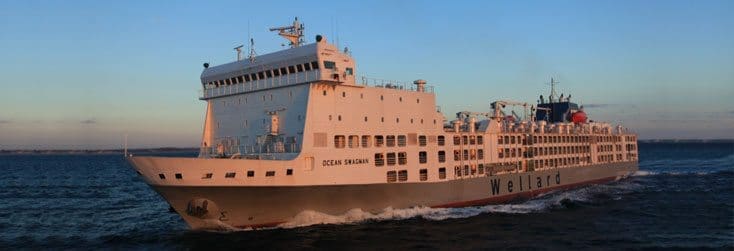FORMER Wellard Limited boss Mauro Balzarini, a naval architect by training who had design input into all of Wellard’s livestock carriers, has added his views to the discussion about the safety of livestock carriers in the wake of the Gulf Livestock 1 tragedy.
Mr Balzarini earlier this year announced plans to launch a new ship building enterprise before COVID-19 pandemic delayed the venture.
In comments to Beef Central this week he said well-designed and executed vessel conversions can be as safe as a purpose-designed new build ships.
He believes the critical point is that the industry needs to phase out ageing vessels.
Mr Balzarini said he has been following the discussion which followed the dramatic loss of the Gulf Livestock 1 and its crew and cattle closely.
He said the safety of vessels is regulated by international rules and each ship granted permission to sail in Australia or the rest of the world does so because it respects the regulation and especially SOLAS (Safety of Life at Sea), which has been ratified by all members the International Maritime Organisation, and has been verified by classification societies and port authorities.
Related article: More to the story: Australian livestock ships must meet world’s highest standards
“A well designed and executed conversion is as safe as a new build ship, but building new allows to design a ship which can guarantee a higher animal welfare standard and be more versatile while lasting longer.
“The real issue is the average age of the AMSA approved fleet which is too old.
“Purposely-built vessels also get old and so does their steel plate, their pipes, their cable, systems etc. so their safety margins decrease even if they remain within the limits.”
Statistically, casualties increased as ships got older, he said.
“If Australia wants to improve safety of livestock carriers (it) needs to impose an age limit and after that age the ACCL (Australian certificate for the carriage of livestock) is withdrawn.
“It is enough to look at what BHP or Rio Tinto do when they vet ships, anything older than a certain age is a no-go regardless of the cost; and they carry iron ore, not live creatures.
“Establishing an age limit of 20 years will incentivise new ships being built because if you convert a 10 year old ship you only have 10 years to depreciate the investment, so ship owners who want to maximize their investment will go for a new vessel and get 20 years out of them.
“What the industry lacks today is a vision and a commitment to best practice to gain credibility by showing investment in new ships and modern technology and if the Australian government would impose an age limit with a short phase out period, it would put in place effective steps to improve the industry standards.”
Mr Balzarini said when he was running Wellard the company always took a strategic view on its fleet and over the years built the Alnilam (now Angus Express – 1998), the Becrux (now Ocean Drover – 2002), the Castor’s sister ships (now Swagman and Bahijah – 2010) and Hull 1093 (Now Al Kuwait – 2016), scrapping old ships along the way.
“Each new vessel had represented a step forward.
“Unfortunately, now all most modern ships have been sold.
“If old vessels are allowed to trade forever there will be very little incentive to build new, modern, safe and environmentally friendly ships.”
In January Mr Balzarini announced plans to construct a fleet of technically advanced LNG-powered ships to provide “smarter, cleaner and more humane live animal ocean transport”, under a new company to be called NextSeaWell
In March he released a statement saying the coronavirus-forced lockdown of Italy and other parts of Europe had slowed the progress of the launch of the new livestock shipping venture.
Asked this week how the plan were progressing Mr Balzarini said progress had been much slower than he would have liked, mainly due to the impossibility of travel and physical meetings.
Internally his team as continuing to work on design to achieve the right balance of size, energy efficiency, and optimization of the various capacities and spaces. “I want to make sure the livestock services will be such that the welfare is improved and this also takes time with simulations and changes.
He said he will report on more developments when the COVID-19 position becomes clearer.



It is almost common knowledge that there is a lack of safety inductions for veterinarians and stockmen when they board these wonky vessels. Also a lack of tracking devices etc. etc. Combine these deficiencies with language problems and a crisis and the future doesn’t look good. Surely it is time for bureaucrats to have a conscience and take some responsibility for a solution before we have a repeat disaster
Of course this is sensible ..however events and damage reduce again the safe and reliable value of the ship. The changes in my view ought also to be to the outlook of the government, organisations, growers, agents, pre-delivery management, merchant seamen and the facilities and conduct of the receiving personnel and management. ..not just ‘out of sight out of mind’. I’d rather the logistics involved ended up with only carcases or packaged meats being sent overseas and looking at longer term shipping isn’t going to see that a priority. I noted that not a word seemed said of the suffering of the recent 3000 plus livestock drowned …the small crew got all the attention. For me that’s an indicator we still have ‘in denial’ about animal welfare, social engagement and suffering which needs to change along with the modernising of shipping..
Just for the record, Anthony, Beef Central made clear and appropriate references to the loss of life among the livestock on board, as well as the crew, in all its reporting of the incident. Editor